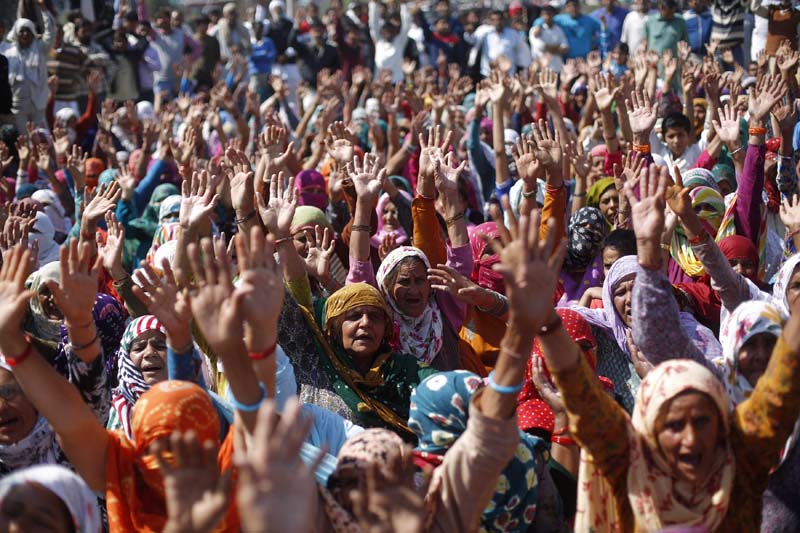Traders count cost of Indian caste riots; 19 dead
NEW DELHI: Traders in a north Indian state are counting the cost of more than a week of rioting and looting by a rural caste during which shops were burned, road and rail links blocked, and water supplies to metropolitan Delhi were cut.
Leaders of a rural caste reached a deal late on Monday to end protests that paralysed the state of Haryana and cut water to Delhi's 20 million residents. State police said main highways reopened to traffic on Tuesday.
Days of rioting and looting across Haryana state by the Jat community challenged Indian Prime Minister Narendra Modi's promise of better days for Indians who elected him in 2014 with the largest majority in three decades.
Muhammad Akil, Haryana's additional director general of police, put the latest death toll at 19, with 170 injured.
In the town of Rohtak, an epicentre of the violence by Jats demanding more government jobs and college places, traders said they faced ruin.
"I had two showrooms on the road both were first looted and then set on fire. I have nothing left now," Anil Kumar told Reuters Television.
Kumar appealed to Modi and to the state's chief minister for compensation: "Are we not humans? Don't our votes count? Why did they not have any mercy on us? Don't we pay our taxes?"
Modi has remained silent throughout the worst social unrest of his 20 months in office, while the federal and Haryana state governments - both run by his nationalist political party - have struggled to cope.
The violence, and the most widespread student protests in a quarter of a century, are likely to overshadow a session of parliament that opens on Tuesday. Indian Finance Minister Arun Jaitley presents his annual budget next week.
Thousands of troops were deployed to quell the protests, which flared on Monday near Sonipat when a freight train was torched and, according to news reports, police shot dead three protesters. Jats also attacked buses in neighbouring Rajasthan.
Disruption has been huge, with at least 850 trains cancelled, 500 factories closed and business losses estimated at as much as $5 billion by one regional lobby group. India's largest car maker, Maruti Suzuki, shut two factories at the weekend because its supply of components was disrupted.
The army retook control of a canal that supplies three-fifths of the capital's water on Monday. A key sluice gate was reopened, but protesters sought to cut off the water supply at another location.
"The canal was damaged by protesters and repair work will have to be done," Delhi's Water Resources Minister Kapil Mishra said. "The water crisis will continue for a few more days."






